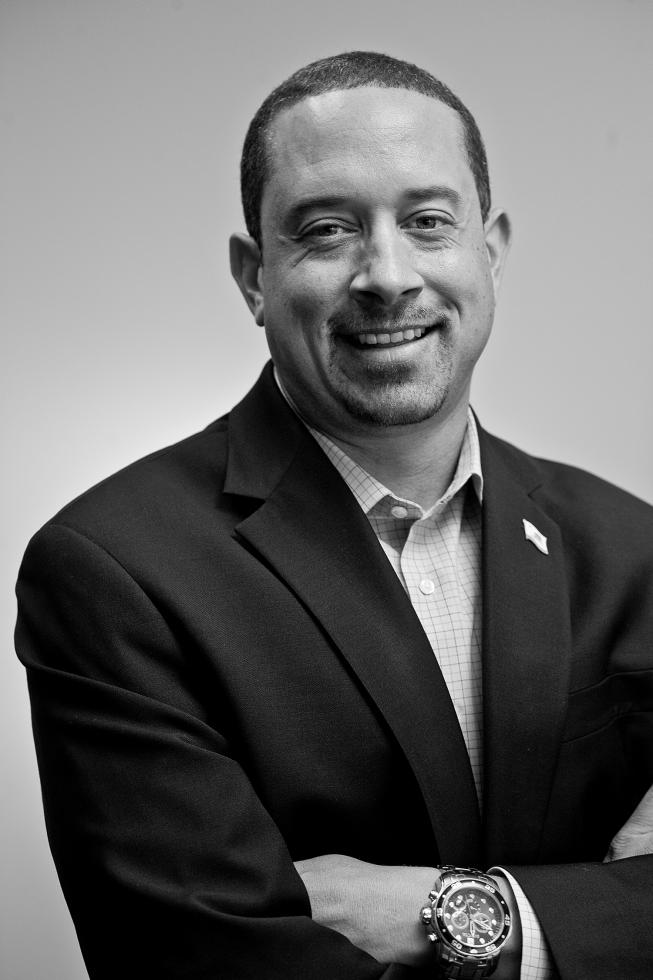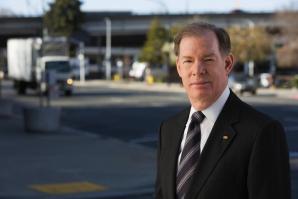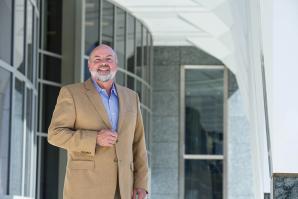Kish Rajan is the director of GO-Biz, the California Governor’s
Office of Business and Economic Development. Previously, he was
the director of North American sales for SanDisk, was an aid to
Phil Angelides during his ’94 run for state treasurer and was a
legislative aide to California Sen. Barbara Boxer.

California Gov. Jerry Brown created the Governor’s Office of Business and Economic Development, known as GO-Biz, in 2011 to help the state attract new businesses and create jobs. The man tasked with running that effort, Kish Rajan, has plenty of know-how in both government and the private sector. His career arc has included time as a staffer on Capitol Hill, service as an elected city councilman in Walnut Creek and 14 years as a highly successful entrepreneur. We sat down with Rajan to talk about GO-Biz and the task of improving California’s business climate.
Your office was created specifically to help businesses grow and to create jobs in California. How do you approach such a task?
California is an unbelievably diverse place. One of our guiding principles is that there is not one state economy, but a collection of regional economies that are very distinct. A big part of our work is engaging fundamentally at the regional and local level, building on partnerships with regional leaders, be they elected officials, economic development organizations, businesses themselves or other ingredients in those regional ecosystems.
We work with them to develop a common understanding of what is driving any given regional economy and how our office can be supportive of what they’re doing.
We hear constantly about the migration of companies out of California to places like Texas and Nevada. We certainly have all seen Texas Gov. Rick Perry’s many attempts to lure our companies to his state. How big of an issue is business emigration for California?
We’re a free-market society, and when you consider that California has a $2.2 trillion economy, some movement in and out should be expected. Some people might want to make political hay and say there is a large migration of business out of California, but that’s simply not the case.
If you look at the numbers, California is growing at a rate higher than the national average. In 2012, we were in the top five in rate of growth. Last year, we were still much higher than the national average in our gross state product growth. We just regained our spot as the eighth largest economy in the world, and we’re closing in on the next few spots above us. We’re also right at the top of the nation in private sector job creation.
So this whole idea of trying to create a spectacle around wholesale taking of business out of the state, we’re not buying in to that. We understand that we are in a competitive landscape, nationally and globally, but we are much more focused on the long game of reinforcing and strengthening California’s advantages as a business climate while also being candid and realistic about where we have opportunities for improvement.
Although manufacturing has been on a long decline, California remains the top manufacturing state in the nation. We’ve made some big efforts in recent years to bolster the manufacturing base here, but the industry still faces challenges. What are we doing, and what more can we do to grow this sector?
First, with $200-plus billion of manufacturing output in California last year — much bigger than any other state in the country — we start with a tremendous foundation. But you’re also right that for many years there was decline in the number of people working in manufacturing and its overall output.
We have turned that around in the past couple years. We’ve seen now, for the first time in a long time, consecutive years of positive job growth in manufacturing in California. I think that’s indicative of a couple things we’re doing, the first being around taxes.
Now, as of July 1, when a manufacturer purchases equipment to start, modernize or grow an operation, they are exempt from paying the state portion of the sales tax on those equipment purchases. So they can now take 4.19 percent right off the top when they’re calculating the cost of the equipment associated with those operations.
The other thing is, California was recently named one of 12 designees for federal investment in the president’s Investing in Manufacturing Communities Partnership, where the federal government is investing in several hubs of manufacturing innovation across the country.
While California benefits from this strong base of traditional manufacturing, like many industries, manufacturing is getting fundamentally renewed from the application of advanced information technology and innovations in the software realm. Things like 3-dimensional printing have become classic illustrations. California, of course, is a leader in [information technology] and a leader in basic manufacturing. So we’re a natural place where manufacturing will be renewed, and I think that’s adding to our growth.
In that regard, we’re in the middle of a serious negotiation to try to get electric carmaker Tesla to build a battery manufacturing plant here in California rather than in Texas, Nevada, New Mexico or Arizona. I know we can’t get into the specifics of what has been offered to get them here, but what can you tell us about the situation?
It’s interesting. Tesla is here for a reason. The company was born here, and it has become enormously successful here for fundamental reasons that I think are special to California. We have a tremendous blend of policy and leadership here as it relates to climate change and being at the forefront of the development of clean transportation. There are few places in the world at the core of where these types of things are happening, and California is one of them.
That is the environment that (Tesla Motors CEO) Elon Musk and the brilliant people around him want in order to create and grow the company. And those are huge distinguishing factors between us and any other states, especially the four that have been mentioned as potential venues for the battery plant.
That being said, what is being contemplated by Tesla is a very big, very complicated operation. So they have very practical considerations, not the least of which is cost. They need a very large swath of land with a very clean slate so that they can build from the ground up the kind of state-of-the-art operations they want. It has to have accessibility to rail and other transportation infrastructure.
Our team is going in on the ground with Tesla, going through all of those considerations and finding ways that we can be creative. We’re bringing the full complement of various incentives or other mechanisms that help make California competitive economically with the other places they’re looking at. And if we can get that to a place that makes sense to them on the math, then we go back to where we started, which is that California is, on balance, the best place for Tesla to operate.
Sick of missing out? Sign up for our weekly newsletter highlighting our most popular content. Or take it a step further and become a print subscriber — it’s both glossy and affordable!
Recommended For You

Kish Rajan Means Business
The GO-Biz director says he will ensure tax credits for businesses lead to more jobs
A report recently released in New Jersey shows that, of the $4 billion in tax credits the Garden State has given to companies since 2010, a whopping 43 percent have been for jobs that already exist. Kish Rajan, director of the Governor’s Office of Business and Economic Development,says that is definitely not going to happen in California

Active Recruitment
Sacramento needs to attract Fortune 500 companies
As Sacramento gears up to expend precious capital on a new sports and entertainment complex that will bring jobs, outside investment and prestige to the region, I can’t help but ask about other key ingredients needed to guarantee Sacramento a successful future.

Pick Up the Pace
Without sweeping changes — and fast — the Central Valley is facing failure
When it comes to overall economic health and vitality, the Central Valley is behind. Way behind. And that should concern us all because there are fundamental factors holding us back.

Taking the Temp of our Economic Climate
Acuity with Sanjay Varshney
Sanjay Varshney, 44, is dean of College Administration at Sacramento State. Last month, in conjunction with the Chartered Financial Analyst Society of Sacramento, he published the seventh issue of the Sacramento Business Review. It offers a look at emerging economic trends and forecasts for 2012 in the Sacramento region, comprised of Sacramento, El Dorado, Placer and Yolo counties.


